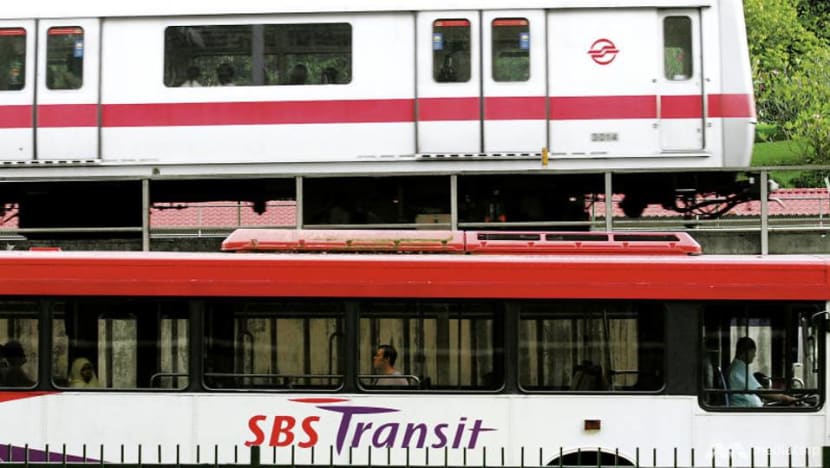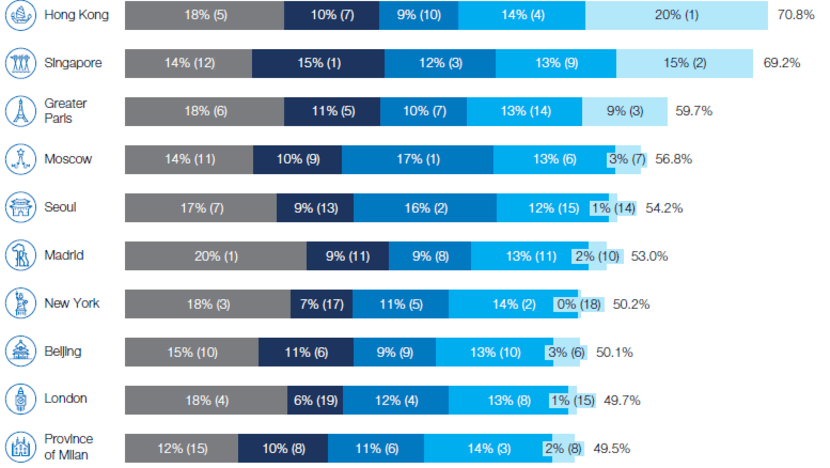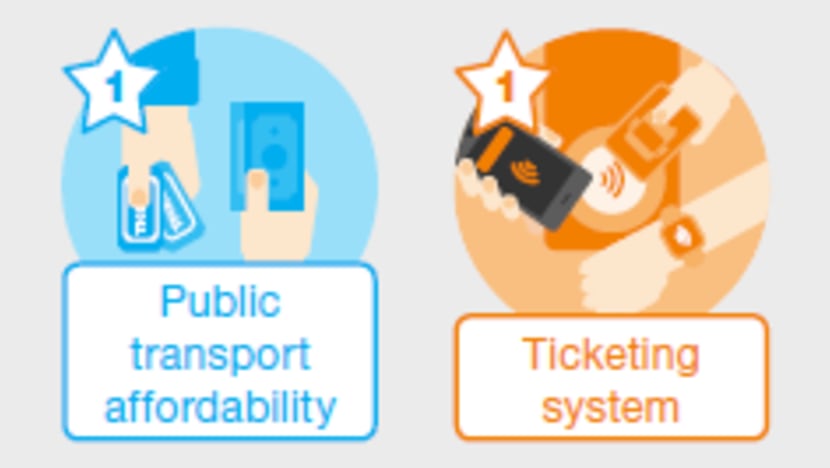Singapore's public transport system among best in the world: McKinsey report

File photo of an SBS Transit bus and an SMRT train. (Photo: Ooi Boon Keong / TODAY)
SINGAPORE: Singapore has one of the best and most affordable public transport systems compared with 24 major cities around the world, according to a June report by consulting firm McKinsey.
The report - Elements of success: Urban transportation systems of 24 global cities - assessed the transport systems of 24 cities using more than 80 indicators over five main dimensions: Availability, affordability, efficiency, convenience and sustainability.
Some of the indicators included the percentage of the population living or working within 1km of a train station, the cost of a monthly public transport ticket, as a percentage of average income and the average transport waiting time.
The report covered all modes of transport - personal, public, shared, cycling, and walking.

Singapore clinched the top spot for public transport affordability, and also scored well in transport efficiency and safety.
"Singapore has created a best-in-class public transport system, which is accessible, efficient, convenient, sustainable, and at the same time affordable," the report said.
The report noted that a major step toward affordability was made in 2013, when the fares were reviewed and new measures were introduced, including a 15 per cent discount on adult fares for low-wage workers, free travel for children and seven other concessions.
As a result, more than one million public transport passengers benefited from the new schemes, McKinsey said.
The city also scored a high rating for sustainability, with one of the "safest and most ecologically sustainable" public transport systems, according to the report.
The report said the convenience and flexibility of the Singaporean ticketing system, using the EZ-Link card, was another "outstanding" feature.

HIGH SATISFACTION AMONG SINGAPORE RESIDENTS
In addition to objective dimensions, the report looked at public perception based on surveys of 400 residents in each city on how satisfied they were with the mobility options available to them as well as their sense of whether the system they used was changing for the better.
More than 30 transportation experts were also consulted to weigh the list of indicators and corresponding aspects according to their importance and impact on the quality of life.
Of the residents surveyed in Singapore, more than 80 per cent said they were satisfied with the overall public transport situation. This was higher than the 71 per cent that was satisfied with the overall situation in private transport.
The McKinsey report stated that Singapore residents were the most satisfied on many of the aspects analysed, as compared to residents globally.
Electronic services, such as trip planners, and their evolution were among the transport features that residents surveyed said they enjoyed the most.
However, the survey respondents were concerned with the affordability of private transport, which the report noted was a result of Singapore's deliberate car limiting policy.
HONG KONG, SEOUL AND BEIJING ALSO RANKED HIGHLY
Based on the report, four out of the top 10 cities for public transport were in Asia - aside from Singapore, Hong Kong, Seoul and Beijing also made it onto the list.
McKinsey said that Hong Kong had among the best public transport coverage in the world, with 75 per cent of the population and 94 per cent of workplaces being within 1km of a metro station.
Notably, the city scored points for its "advanced" ticketing system, the Octopus chip card, which can be used not only to pay for transport and non-transport services, but is also used for non-payment purposes, such as access control for office buildings.
It also had the highest ranking for public transport safety, with lower rates of public transit fatalities per one million people as compared to other cities.
Seoul was ranked second among all of the cities for its public transport efficiency, with its progress driven by the optimisation of bus routes and construction of exclusive median bus lanes that increased bus speeds by an average of 30 per cent, according to the report.
The development of an intelligent bus management system also played a crucial role in optimising bus headway and staying on schedule, making bus services more reliable, the report found.
Beijing ranked among the top 10 across all five dimensions, coming in 10th - ahead of Singapore's 12th - in terms of its rail infrastructure.
Of the cities surveyed, 20 were selected based on size, level of economic development, transportation system characteristics, and availability of data. Four more - Berlin, Hong Kong, Shanghai and Singapore - were chosen because their transportation systems were "considered outstanding by external institutions", according to McKinsey.














